Search Images
Browse Content (p. 1061)

Image
The Pyramids of Giza
Photo of the Pyramids of Giza.
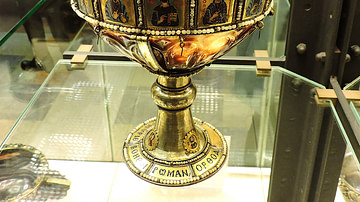
Image
Byzantine Chalice
A Byzantine chalice, c. 1070 CE. Made with a semi-precious stone body and gold stem, the cup is decorated with enamel plaques. (Treasury of Saint Mark’s, Venice)
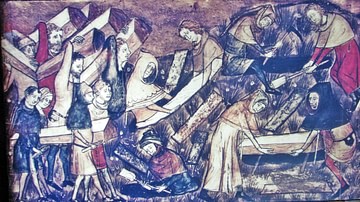
Image
Tournai Citizens Burying the Dead during the Black Death
The citizens of Tournai, Belgium, burying the dead during the Black Death of 1347-52 CE.

Image
The Plague by Arnold Bocklin
The Plague by Arnold Böcklin, 1827–1901 CE. (Kunstmuseum, Basel, Switzerland)

Image
Spread of the Black Death
A map illustrating the spread of the Black Death plague from its origins in central Asia to western and then central Europe, 1347-1352 CE.
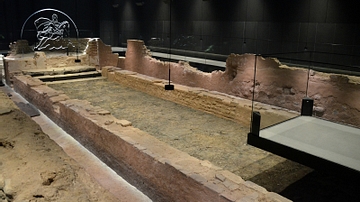
Image
London Mithraeum
The remains of the London Mithraeum, dramatically presented inside the modern Bloomberg Building in the city of London. The Temple, dedicated to the god Mithras, the Lord of Light, was built in the 3rd century CE by an unknown Roman citizen...
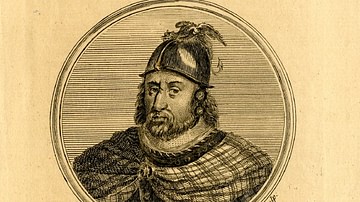
Image
Sir William Wallace
Etching depicting Sir William Wallace (c. 1270-1305 CE) who was a Scottish knight and national hero who fought for his country’s independence from England. (From Smollett's "History of England", 1757 CE)
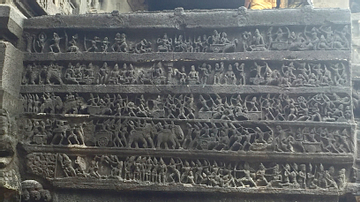
Image
The Armies of the Rashtrakutas (Eighth to Tenth Centuries CE)
This war scene shown in a temple frieze in the Kailashanatha Temple built by the Rashtrakuta emperor Krishna I (756-773 CE) depicts the Mahabharata war. The soldiers' arms and armour however, belong to the period of the imperial Rashtrakutas...
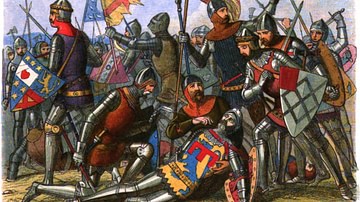
Image
Sir Henry Hotspur Percy
The death of Sir Henry 'Hotspur' Percy (1364-1403 CE) at the Battle of Shrewsbury who was the most famous member of the noble Percy family of northern England (A Chronicle of England: B.C. 55 – A.D. 1485, J.W.Edmund)

Image
Tomb of Edward the Black Prince
The tomb of Edward of Woodstock (1330-1376 CE), the eldest son of English king Edward III of England, Prince of Wales from 1343 CE and the scourge of the French nobility. Known as Edward ‘the Black Prince’ (from the 16th century CE). (Canterbury...